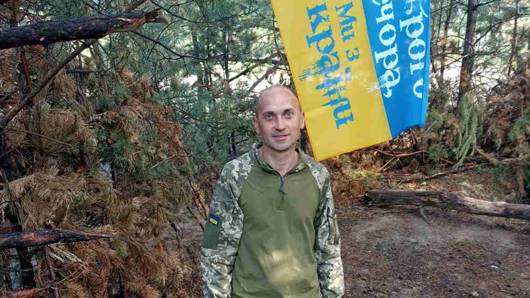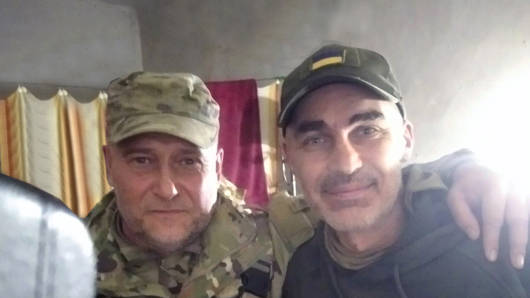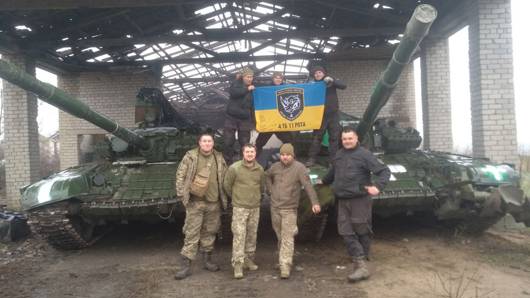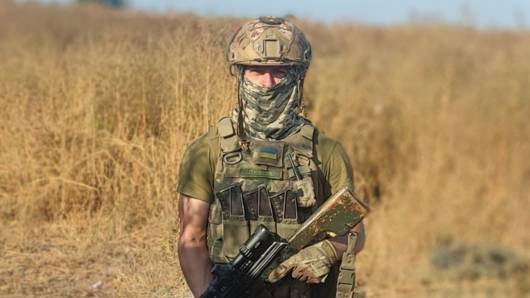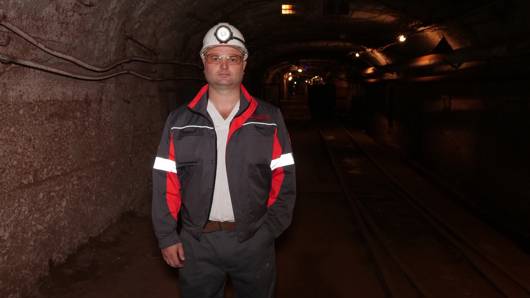For more than 20 years, Natalia Fomina has been working at Ingulets GOK in the function for performing current and major repairs. A real specialist is well-versed in how to put everything in order. Her hands are not afraid of work, and she is also quite skilled in sewing. With the beginning of the full-scale war, the woman showed her will to help the defenders, which she continues doing to this day.
The feelings and emotions of the first days and months of full-scale aggression are still quite fresh in our memory. A rush to buy essential goods, broken logistics, disrupted supplies of necessary products, and a shortage of gear for defenders. At that time, the words “plate carrier”, “helmet”, “load bearing vest” quickly burst into our recently peaceful life. Natalia Fomina did not think for a long time about how to be useful in difficult times, but immediately sat at the sewing machine. Sanitary bags, load bearing vests, hand-carries for the military - the list of her products included many useful and popular items for defenders.
“When the military was defending the city, I did a lot of sewing because of a high demand for it. Volunteered with my friend Olena Vasiuk. She is also from Ingulets GOK, she works there as a dispatcher in an open pit mine. We found old things made of durable fabric, washed them, cut and sewed various products. Work clothes that were going to be written off were also used. Later, we started ordering Pixel Safari and Dublerin. We lined the inside with rain-wear fabric so that the product would not get wet,” Natalia FOMINA explains the details of the technology.
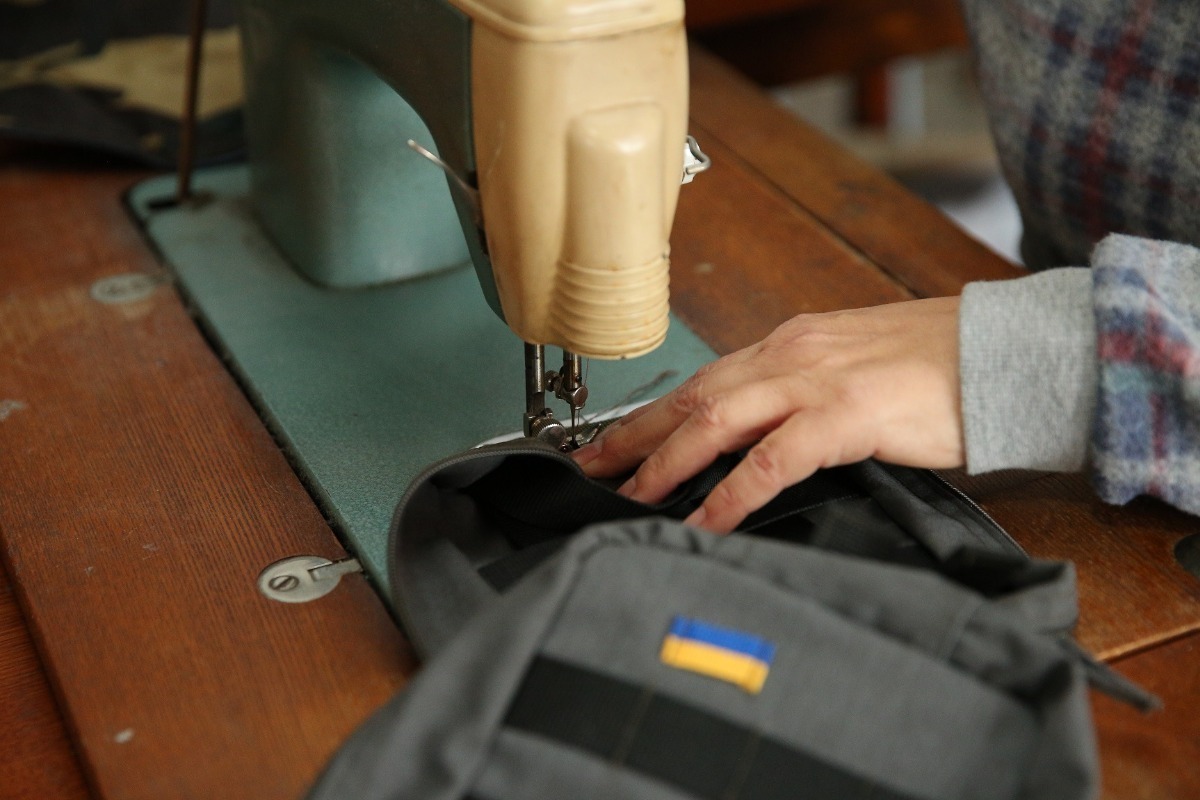
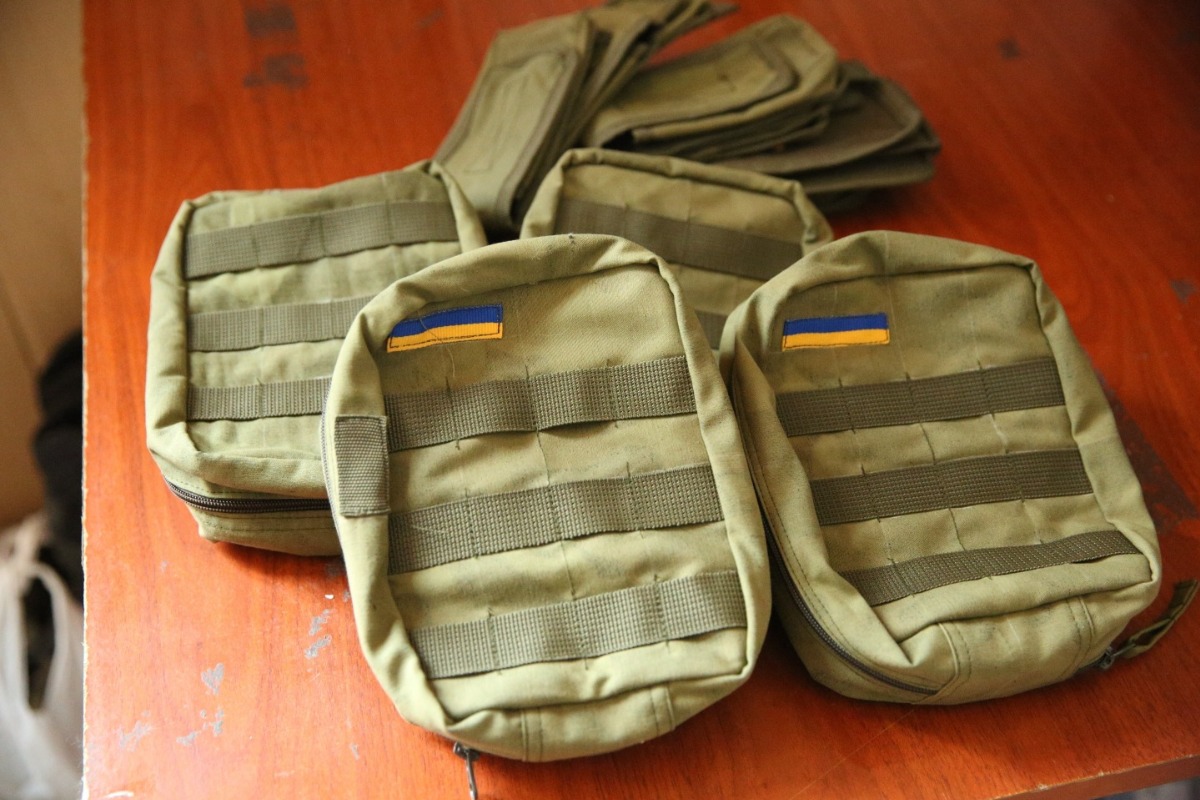
But Natalia spent her free time not only in the volunteer tailor shop. She could be often found at the humanitarian centres located in the Ingulets Palace of Culture. There, together with everyone who wanted and felt caring, she wove camouflage nets to protect military personnel and equipment of the Armed Forces of Ukraine. But after repeated shelling of the residential area, we had to look for safer places for volunteering. Natalia found a way to continue doing good deeds.
"Together with the neighbours, we started weaving camouflage nets in the basement of the house where I live. We prepared it in advance for residents during air alerts: cleared it out and made it quite cosy. We set up a place there for weaving nets: we placed wooden logs and stretched wire between them. I want to say that it’s even more convenient now, because you don’t have to go anywhere. We go down to the basement and weave unhurriedly,” shares Natalia.
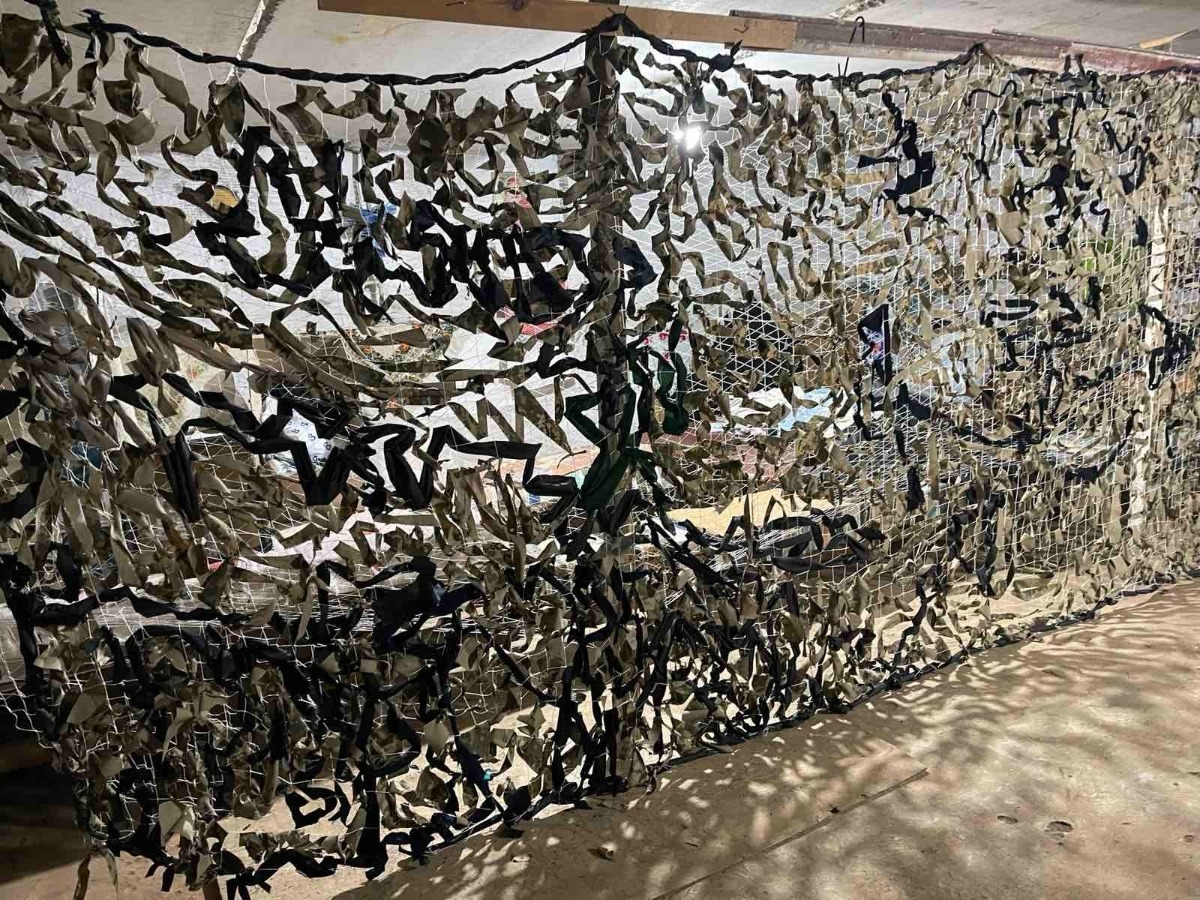

Before handing over the woven nets to the defenders, "good hands" wrap them with something sweet or warm for the warriors. Sweets, dried fruit, nuts, knitted socks, handmade toys are small surprises that would remind them of the warmth of home. In 2024, volunteers wove and handed over 13 camouflage nets to combat positions.
Natalia Fomina also said that she persistently urges her daughter’s family, who has been living in America for a long time, not to forget Ukrainian. On the grandmother's initiative, since last year, her grandchildren have been regularly attending online lessons in the Ukrainian language. Their tutor is a language teacher from Kharkiv. And Natalia herself speaks with her oversea relatives only in Ukrainian. She says that no matter how life turns out for anyone, no one should forget about their origins and roots, because this is the only way to preserve the nation.






